The Family Office: a familiar classic
A Family Office traditionally provides a broad range of administrative and advisory services to wealthy families. This includes staff management, travel coordination, and oversight of trusts and investment portfolios that sit outside the family’s main business operations.
However, the term has become diluted. Offices of vastly different scale and complexity now operate under the Family Office “brand”, making the definition less useful and more ambiguous.
Enter the Private Office: tailored sophistication
The concept of a Private Office brings with it a more refined image. It reflects a shift in mindset and increased emphasis on the importance of discretion. Rather than handling logistics, investment oversight and reporting, a Private Office focuses on strategy, governance, and long-term alignment with the family’s succession planning objectives.
Private Offices are more likely to have responsibility for the operation and administration of governance structures and in-house capabilities for administering trusts, companies, and asset holding vehicles. They are often structured in a manner to ensure that they operate on an autonomous basis with a view to enhancing oversight, control and accountability.
Governance, risk and transparency
Whilst privacy and loyalty are valued in both models, Private Offices tend to place greater emphasis on reputation management, governance and asset risk management. In comparison with the traditional Family Office, they act as the central hub for selecting and overseeing external advisors while maintaining independence.
Strategic partnerships with boutique investment firms are common, supporting co-investment opportunities where interests are aligned. Sophisticated consolidated reporting tools and outsourced investment oversight are essential for managing complexity across myriad asset classes including art, real estate and trophy assets which require specialist valuation and insurance.
Structural and geographic distinctions
Many Family Offices remain informal and evolve out of the family’s primary operating businesses, led by the former CFO or General Counsel. Private Offices, however, are typically independent, established in jurisdictions that offer mature legal frameworks and reliable infrastructure for managing cross border wealth.
Whilst a Family Office may rely on existing resources available in the family business, such as legal counsel, Private Offices often engage third party professionals across a variety of disciplines including legal, accounting, investment, crisis and reputation management. Increasingly, families seek to separate the management of personal assets from operating business interests to protect against jurisdictional, legal and reputational risk.
Modern challenges, elevated responses
Private Offices have evolved in response to today’s growing list of challenges. These include cybersecurity, digital reputation management, personal tax compliance, and residency monitoring. These concerns are built into the operating model from the outset.
The Private Office also reflects a growing commitment to values-based investing. Areas like sustainability, renewable energy, and healthcare innovation are becoming core themes. Investments are not only made for return, but also for long term purpose and impact.
Succession and stewardship
Both models must address succession planning. However, the Private Office promotes a more inclusive and long-term approach. It encourages next generation involvement and education, creating a sense of responsibility and shared vision.
Succession is not viewed as a transaction. It is a process that evolves with the family’s needs and requires constant communication, trust, and shared philosophy.
Why the difference matters
The Private Office is effectively the ‘next generation’ of the Family Office, having evolved to address the challenges in modern wealth transition and how wealth is structured, protected, and grown. The Private Office reflects a shift in mindset toward proactive governance and accountability across multiple generations.
Families who understand the stewardship of generational wealth are better prepared to manage complexity, build alignment, and create a legacy that endures.
Next steps
If you are interested in building your own Private Office, restructuring an existing Family Office, undertaking an independent assessment of your governance requirements, or reassessing how your family’s affairs are structured, we are here to help. Speak with our team at Oak to explore how we can support the creation or evolution of your Office at any stage of its development and your asset structuring journey.




